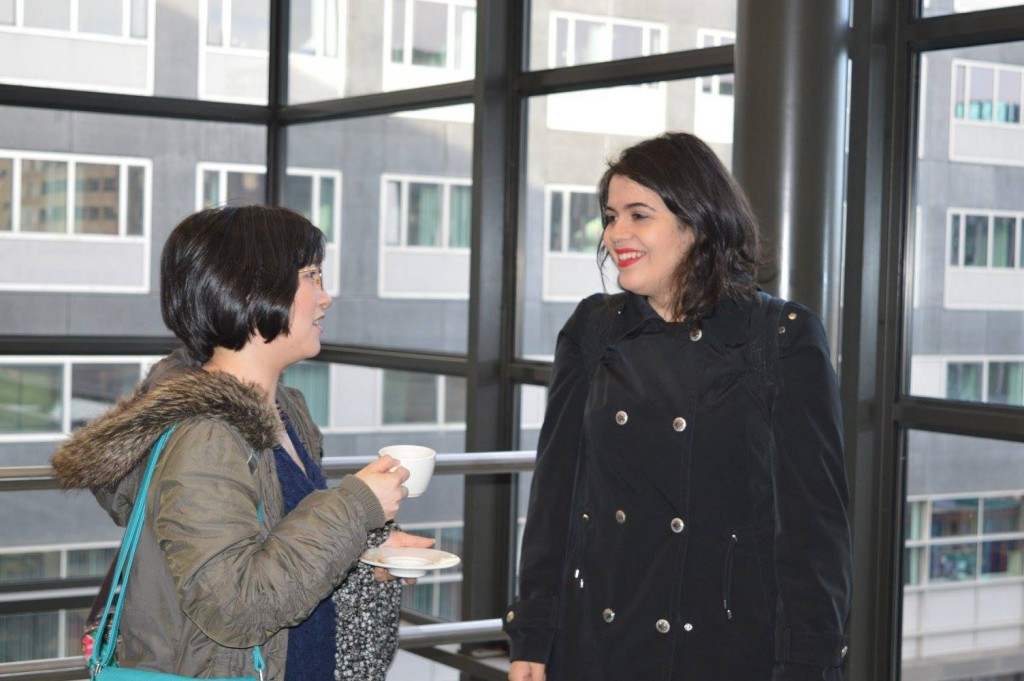This post focuses on the information sources and resources that the 31 members of my Delphi panel mentioned in their responses.
The main finding in this section of the study found that overwhelmingly, the primary or source text is the key source of information for cult media fans. Whilst online sources take up the largest percentage of sources used by panel members, offline sources, or those that are neither specific to digital or analogue forms, were also widely used, thus supporting the view that fans are comfortable using a wide range of resources to gather news, seek out trivia, research projects, and share information about their fandom.
The first round of this study also seems to show that fans use a wide variety of resources, from ‘official’ sources to fan-made resources. In the case of official sources, this is not merely restricted to the source text or canon, but also includes such things as interviews, tweets and Tumblr postings from actors/writers/creators/producers, printed art books, promotional materials and other merchandise. As for fanon and fan-made resources, there are obviously other fanworks, but also fan talk, wikis, rec lists, social media, and so on.
The following table gives a run-down of all the information sources and resources cited by the Delphi panel’s 31 participants. The list is broken down into three sections – online, offline, and specific to neither of these media.
| Online | Offline | Non-specific |
| Fanfiction.net | Art books | Primary/original source/text |
| Message boards | Comics | News and press releases |
| Fan sites | DVD extras/commentaries | Interviews |
| Fanart sites (e.g. deviantART) | Magazines | Articles |
| YouTube | TV shows/documentaries | Promotional materials |
| Tumblr | Library | Other fans |
| Twitter (official and fan accounts) | (auto)biographies | Friends/family/colleagues |
| Facebook (official and fan accounts) | Radio shows | Actors/agents/producers/creators |
| AO3 | Stores and shops | Newspapers |
| Google Drive/Docs | Books | Scientific/academic papers |
| Podcasts | Movies | Fanworks |
| Social networking sites | CD’s/records/soundtracks | Reviews (print, AV, digital etc.) |
| Gossip sites (e.g. Celebrity Dirty Laundry) | Overhearing fan conversations | |
| Screenshots (of games, movies etc.) | Teachers/professors | |
| Soundtracks | Reading groups | |
| Wikis (e.g. Wikipedia, Marvel & DC Comic Databases) | Theatre/stage/performance | |
| Databases | Imagination! | |
| Spoiler pics/lists etc. | ||
| Mailing lists | ||
| Archives | ||
| Livejournal | ||
| Rec lists/link lists | ||
| Google search | ||
| Mediafire/Dropbox | ||
| Dreamwidth | ||
| WordPress | ||
| Live tweeting | ||
| Blog posts | ||
| ComicBookResource | ||
| Marvel.com | ||
| Ebay | ||
| Adultfanfic.org | ||
| Yahoo | ||
| Live-plays/walkthroughs/guides | ||
| Kickstarter/Patreon/Twitch | ||
| Google Translate | ||
| Memrise | ||
| Comicology/My Comic Shop/Midtown Comics | ||
| Rage comics | ||
| Memes | ||
| Gamespot/IGN etc. | ||
| Fic-find communities | ||
| Cosplay.com | ||
| Game trailers |
If you want to read more about the findings of the Delphi study, you can read my paper, “Being in a knowledge space”: information behaviour of cult media fan communities. The paper is also available through my Publications tab above.

